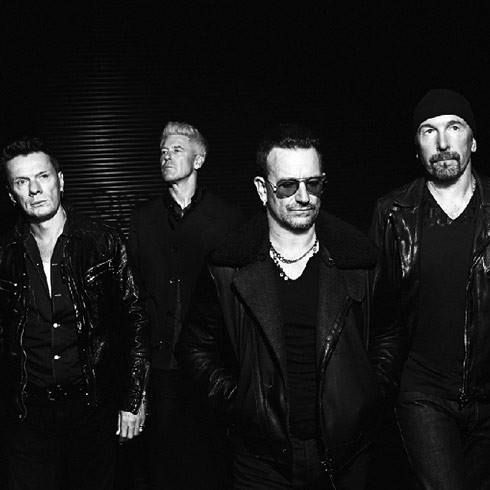U2 gives themselves away, bores on Songs of Innocence

September 15, 2014
No matter how many times U2 reinvents its musical identity, few people are likely to forget the budding young Irish rock band that carried itself to stardom with the early hits “Sunday Bloody Sunday” and “Pride (In the Name of Love).”
For U2, this simple fact is a double-edged sword. Throughout the course of its illustrious career, the band has shown remarkable musical depth and versatility, which the pop community has hardly seen elsewhere. The same fan who lost himself in the words of “With or Without You” to get over a breakup could probably be found several years later, in a crowded arena, jamming out to “Mysterious Ways” while a live belly dancer accompanied the band onstage.
But that fan, if only subconsciously, now expects another Joshua Tree with every new album release. Or, since U2 has already gone through its avant-garde, alternative-rocker phase, maybe the fan expects the next Achtung Baby.
Whatever the expectations, and they are always high for the world’s most famous rock band, Songs of Innocence falls short of living up to them. Along with changing its sound and image, it seems there is one more thing U2 can do that no other band can get away with: giving themselves away — for free.
On Sept. 9, U2 made Songs of Innocence available for free download to anyone with an Apple account. Apple still fronted the band a significant amount of money to release the album, but perhaps U2 is trying to set a precedent for other recording artists.
For all that may be lacking on Songs of Innocence, it still boasts the energy and passion that sets U2 apart. Bono’s voice seems as clear and expressive as it was in the ’80s, and The Edge continues to impress, laying down some great backing instrumentation throughout the album. His work stands out on “Every Breaking Wave,” and “California (There Is No End to Love).”
The latter track provides the most succinct reminder of the old U2, as Bono sings about love and loss. “Iris (Hold Me Close)” may be the most emotionally charged track on the album, showing The Edge’s indispensable role as a backing vocalist. On “Iris,” U2 also shows its keen ability to keep a listener guessing, a trait often overlooked by music critics. Bono starts off singing in a high croon, backed by a light, spacey synthesizer. The Edge comes in on guitar and vocals, the song picks up tempo during the first verse and it finally explodes into a heart-wrenching chorus, powered by The Edge’s fast-paced, yet measured, guitar playing.
It seems as though U2 was going for another “Vertigo” with the first track, “The Miracle (Of Joey Ramone),” and the band has made an effort to promote this song more than any other. Just like the lead single of How to Dismantle an Atomic Bomb, “The Miracle (Of Joey Ramone)” is the first track of the album and features a distortion-heavy guitar part by The Edge and definite arena-rock potential.
“Song for Someone” is another one of Bono’s faith-based songwriting efforts. Credit goes to him for his poignant lyrical work, although the instrumentation is rather naked. A more decisive melody, especially in the beginning, could have definitely helped accentuate the lyrics.
Bono’s songwriting on Songs of Innocence surely has its moments, but it lacks the depth and consistency we’ve seen on previous efforts. Instrumentally, U2’s newest album sounds most like their last effort, No Line on the Horizon, with a small hint of How to Dismantle an Atomic Bomb. Only a scant few tracks on Songs of Innocence even come close to matching the depth and sense of wonder found on “City of Blinding Lights” or “A Man and a Woman,” two of U2’s finest post-2000 cuts.
U2 may never sell albums like it did in the ’80s and early ’90s, and it seems like the band understands this fact more than anyone else. But U2 will always challenge the status quo in the music world — in this case, if not with the songs themselves, then with the way it releases them.







